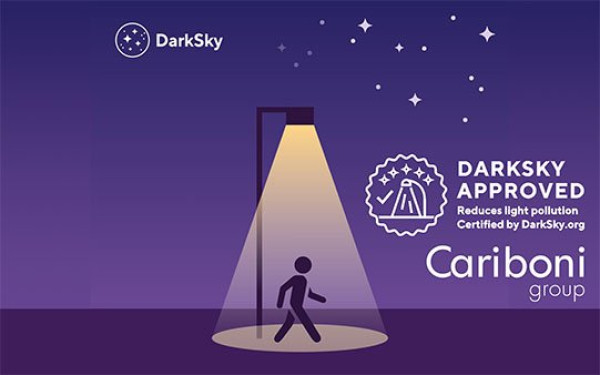Pursuant to and in accordance with art. 13 of Legislative Decree 196/2003 and pursuant to art. 13 of the GDPR 679/2016 European Regulation on privacy, we inform you that the personal data voluntarily provided by you by Cariboni Group S.p.A. will be processed in compliance with current legislation.
This page describes how to manage the site in relation to the processing and protection of your personal data.
The information is also provided pursuant to Recommendation no. 2/2001 adopted by the Working Group established by art. 29 of the directive n. 95/46 / EC to those who interact with the web services of this site, in order to protect personal data, accessible electronically from the address.
By accepting the contents of this Privacy Notice you consent to the collection and use of Personal Information as described below.
This Statement fully describes the practices we have adopted.
Personal information we collect when you subscribe to the newsletter
When you register on the website www.caribonigroup.com we collect personal data and information necessary to complete the registration form. This personal information includes the following contact information: Name; Surname; Company; Profession; Email; City; Country; Telephone; category of products of interest.
Purposes of treatment
We inform you that the data collected by registering your name or retrieved by us through the consultation of public registers, lists or documents that can be known by anyone, will be processed in compliance with the provisions mentioned above and the confidentiality obligations that inspire the activity of the Cariboni Group S.p.A.
The treatments carried out by Cariboni Group S.p.A. will be based on principles of correctness, lawfulness and transparency and protection of your privacy and your rights.
The data will be used for commercial, promotional and advertising purposes, as well as for management and statistical purposes. The personal data are processed by us in a lawful manner, according to correctness and with the utmost confidentiality. They are registered, organized and stored in computer and / or paper archives. The data may be communicated by us to our sales network, to consultants in the administrative / commercial area, to transporters for the delivery of goods / illustrative material and to controlling, controlled and investee companies.
Further purposes
The computer systems and software procedures used to operate this website acquire, during their normal operation, some personal data whose transmission is implicit in the use of internet communication protocols. This information is not collected to be associated with identified interested parties, but by their very nature could, through processing and association with data held by third parties, allow users to be identified.
This category of data includes IP addresses or domain names of the computers used by users who connect to the site, the addresses in URI (Uniform resource Identifier), notation of the requested resources, the time of the request, the method used to submit the request to the server, the file size obtained in response, the numerical code indicating the status of the response given by the server (successful, error ....) and other parameters related to the operating system and the user's computer environment.
These data are used for the sole purpose of obtaining anonymous statistical information on the use of the site and to check its correct functioning and are deleted immediately after processing.
The data could also be used to ascertain responsibility in case of hypothetical computer crimes against the site.
Identity of the holder of the treatment
The Data Controller is represented by two entities:
-
Cariboni Group S.p.A., via G. A Prato, 22 38068 Rovereto (Trento) identified in the person of the its owner and Sole Director.
-
Rocket Science Group LLC, based in Georgia (USA).
In this case, as foreseen by the GDPR Regulation, the data can be processed by two data controllers ("co-ownership" of the data).
NB: the site accessed to subscribe to the newsletter Mailchimp contains the extensive information of the co-owner Rocket Science Group LLC.
The Data Controller called Cariboni Group S.p.A. guarantees the security, confidentiality and protection in its possession, at any stage of the processing of the same.
The collected data are used in compliance with current legislation on privacy (GDPR 679/2016/EU).
Treatment site
The data will be processed by the data controller at its registered office and its operational headquarters in Osnago (LC) Via della Tecnica, 19.
Refusal to provide data
You can refuse to give your data to the Owner. In this case it will not be possible to use the service linked to the newsletter.
Data addressees
No data deriving from the web service (therefore navigation data specified above and cookies) is communicated or disseminated (save communication to judicial or police bodies if necessary).
The data are processed by personnel specifically appointed in writing to the processing of data (administrative staff and persons in charge of relations with the public, even outside the Company, who are in charge of the management of information systems even outside the Company who may also perform functions as system administrator and are in this case, those appointed, personnel in the marketing sector, also external to the Company, interns, data processors and their collaborators, in charge of the specific sector to which a request is made, who are responsible for managing the site even outside the Company) only if the processing is necessary to carry out their duties by performing only the operations necessary for the performance of the tasks.
They can also be processed by data processors (including companies outside the Company that perform shipping, marketing, and server management and storage). The external companies can process the data also through specifically appointed employees in writing who can perform the same activities and process the data for the same purposes, for which the managers have been appointed by Cariboni Group S.p.A.
The data provided by the user can be communicated to the subjects for whom there is a duty of communication in accordance with the law or a need for communication to assert the right of the company to the bodies in charge.
Storage time
The Data are processed for the time necessary to achieve the purposes for which they are processed. In this sense, the data collected for joining / subscribing to the newsletter will be kept for as long as you decide to stay registered with it.
You can always, at any time, request interruption of treatment or deletion and / or limitation of data.
Data transfer
The Data Controller does not transfer personal data to unauthorized parties resident in third countries or to international organizations.
Revocation of Consent
With reference to art. 23 of Legislative Decree 196/2003 and art. 6 of GDPR 679/16, you can withdraw your consent at any time.
Rights of the interested
With reference to the art. 15 "right of access", art. 16 "right of rectification", art. 17 "right to cancellation", art. 18 "right to limitation of treatment", art. 20 "right to portability", art.21 "right to oppose the automated decision-making process of GDPR 679/2016, the interested party exercises his rights by writing to the Data Controller at the following address: Cariboni Group S.p.A., Via della Tecnica, 19, 23875 Osnago (Lecco), Italy, Tel. (+39) 039.95211 - Fax (+39) 039.587812 - email:
privacy@caribonigroup.com
Proposition of the complaint
The interested party has the right to lodge a complaint with the supervisory authority of the state of residence.
Automated decision-making processes
The Data Controller does not process treatments consisting of automated decision-making processes.


![[d]arc sessions 2025 Ibiza](https://www.caribonigroup.com//storage/media/immagini/news/751/gKBGzBYnZa8iBc6tinLfvQnxwgXlsbDvKxhjQaMR.jpg)

